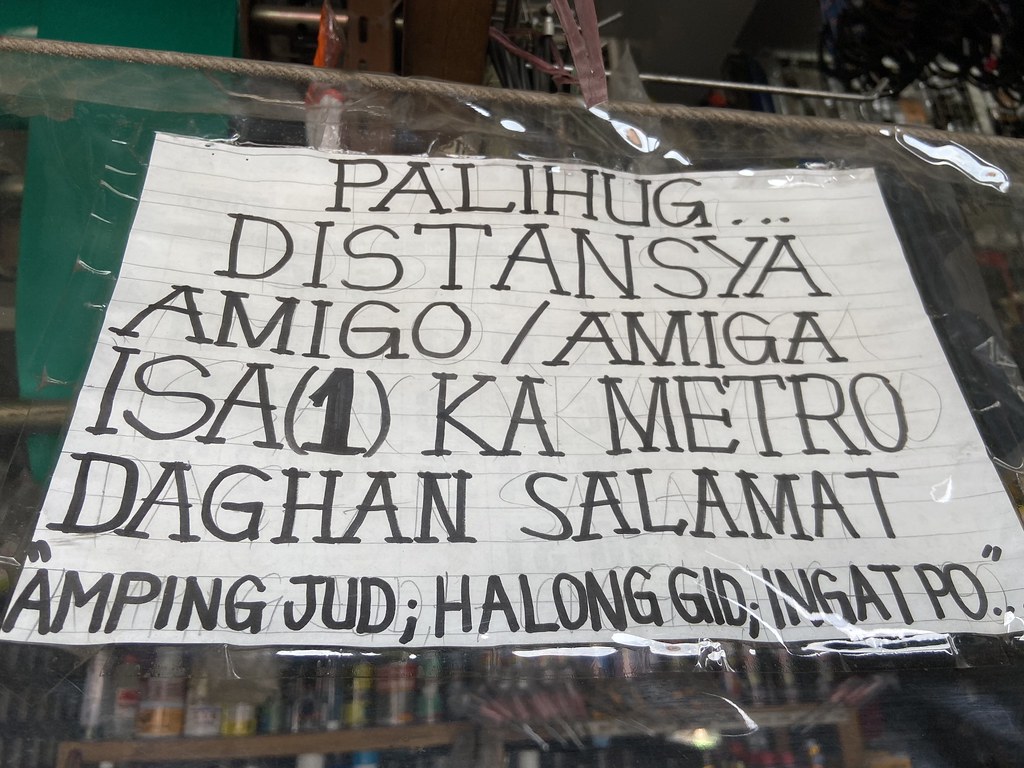Code switching

It's normal for people to talk in South Cotabato to answer in Hiligaynon when you ask them in Bisaya or Tagalog. I have Bisaya- and Hiligaynon-speaking cousins who perfectly understand Tagalog and English. As a doctor, it makes my patients comfortable if I speak to them in their lingua franca. I can barely scrape a workable Ilocano vocabulary, but my patients from Tantangan and some parts of Tacurong and Isulan, Sultan Kudarat, are impressed that I can say that the weather outside is napudot.
Labels: daily

6 Comments:
omg haven't heard "lingua franca" since Comm I! = )
Naks! Napuduten aya dita? Nalam-min pay idtuy QC inggana 2 days ago (ayan my Ilocano has run out) ngem tatta pimmudutten.
Han ko unay ammo ti spelling na haanak agbasbasa ti Iluko (yun yata ang language whereas the ppl are Ilocano? Not sure).
Latin in daily conversation!
I am impressed!
Nah, it's my lingua franca. I'd be impressed if you understood all of that, hehe.
I learned the term "lingua franca" from my Komunikasyon 1 class which I was forced to take because there were no more blocks available that had that subject in English (so I was also forced to take Kasaysayan, Humanidades, etc. later ugh). I did get forced to learn a lot more Tagalog and to use it in conversation (and to write which I did in English then translated hahahuhu) so I guess that was a good thing, in the end.
Post a Comment
<< Home